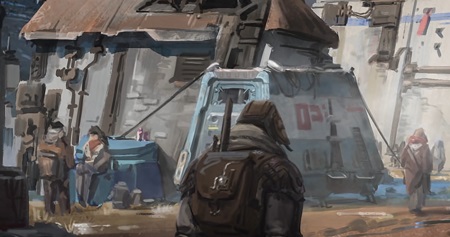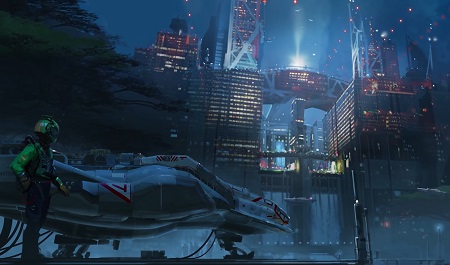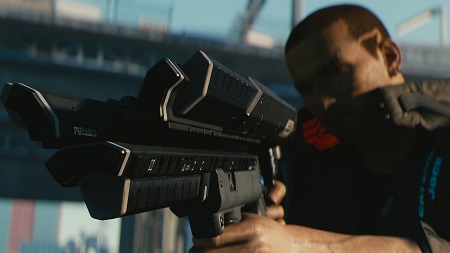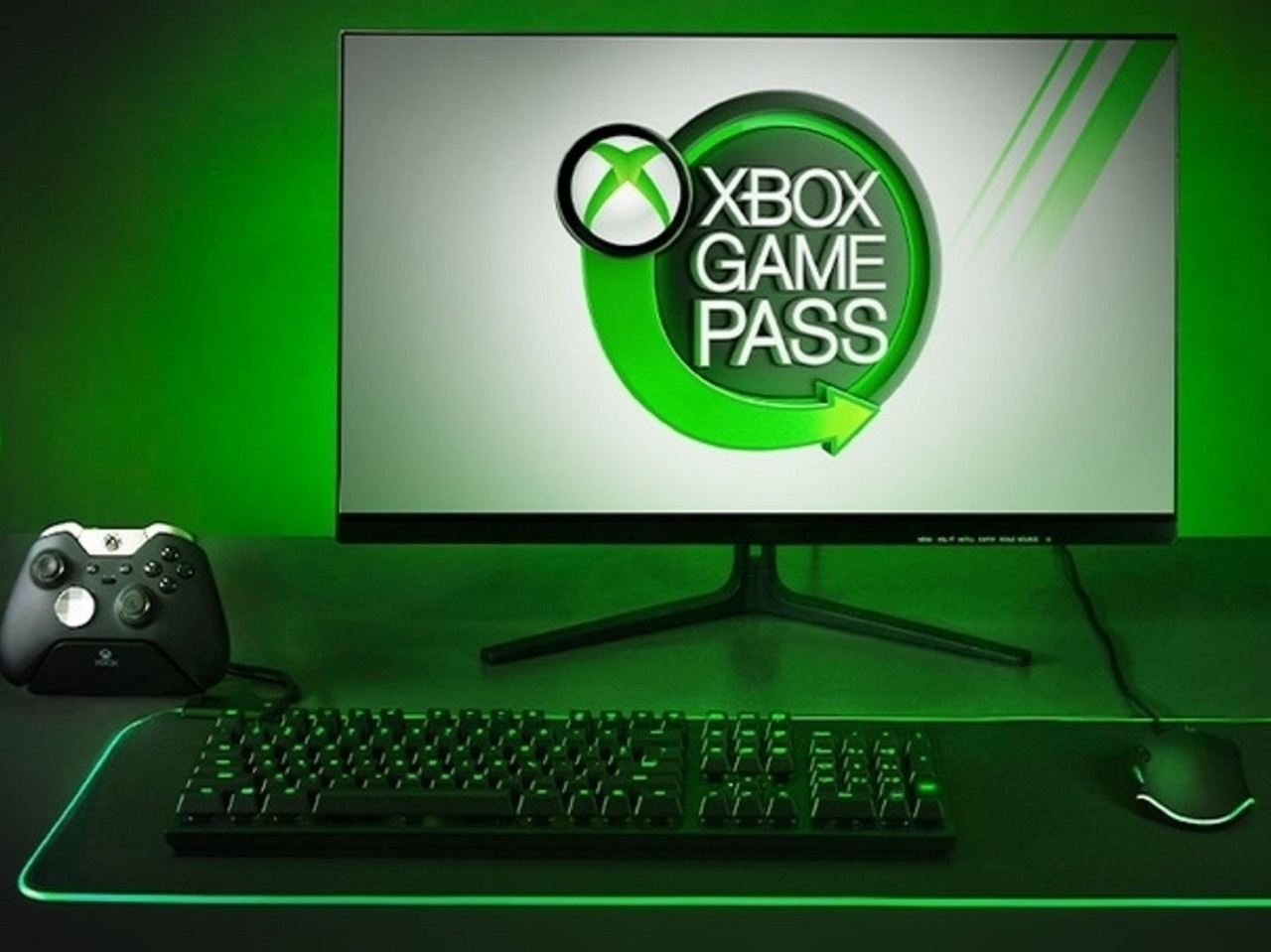If you missed the announcement, Bethesda Game Studios’ upcoming sci-fi role-playing game Starfield has been delayed. Originally planned for a November 2022 release, that has slipped back to “the first half of 2023,” which potentially means that the game is a year or more away. With Starfield having shown off a cinematic teaser and some concept art but no real gameplay yet, perhaps the delay was not entirely unexpected! Regardless, some folks are upset by this move, with some PlayStation super-fans even hailing it as a “failure” for Xbox. Obviously that isn’t the case, so today we’re going to use Starfield as an example of why delays really are a good thing.
First up, it’s never fun when a game I’m looking forward to receives a delay. I don’t think anyone is trying to pretend that a delay to a highly-anticipated title – particularly a lengthy delay of six months or more – is something that fans and players are thrilled about or want to see. Instead, I’d describe delays as “understandable.” Particularly in light of a number of recent titles that have been disappointing due to feeling like they weren’t ready to go on launch day, I think more and more players are coming around to that point of view.

Increasingly, these kinds of announcements are treated with maturity and understanding by players – and you need only look to some of the comments and responses to Bethesda’s announcement about Starfield as a case in point. Yes, there are some folks who are angry or unhappy – toxicity exists within the gaming community, who knew? And there are the aforementioned PlayStation ultra-fans who are taking a victory lap. But many responses were positive, saying something along the lines of “if it needs more time, that’s okay.”
Failing to delay a game when extra development time is clearly required never ends well. A game’s reputation is largely set within a few hours of its release, and attempting to change the narrative once “it’s bad” or “it’s full of bugs and glitches” has become the overwhelming impression is nigh-on impossible. For every No Man’s Sky that manages to pull off some kind of rehabilitation, there are dozens of titles such as Anthem, Aliens: Colonial Marines, or Warcraft III: Reforged. It’s much better to launch a decent game out of the gate than to try to fix a broken mess after players are already upset.

One game has done more than any other in recent years to soften attitudes in favour of delays and to remind players just how badly it’s possible to screw up a premature launch: Cyberpunk 2077. Despite receiving a significant delay earlier in 2020, Cyberpunk’s launch in December of that year was so catastrophically bad that the game ended up being forcibly removed from the PlayStation store, found itself widely criticised by players, and it even saw CD Projekt Red’s share price take a tumble from which it has yet to fully recover.
Starfield exists in a similar space to Cyberpunk 2077 – both are role-playing games, both include science-fiction elements, both are open-world titles, and so on – so many of the players anticipating Starfield have been burned already just eighteen months ago by a game that was released far too soon. Those players, perhaps more than any others, are inclined to understand the reasons behind this decision. And even folks who didn’t personally get caught up in the Cyberpunk 2077 mess are at least aware of what happened.

In 2022, with so many games having been released too soon, the attitude from players in general has shifted. Where delays may once have been met with a louder backlash from those who felt disappointed, reactions today are more mature and understanding. That’s not to say toxic or aggressive individuals don’t exist or that there won’t be any criticism of such a move, but rather that the scale of backlash that delays receive is now less significant than it used to be.
At the end of the day, even the most aggressive critics of delays are still likely to buy a game that they’re excited for when it’s ready. It would take some serious self-harming spite to say “because you didn’t release the game in 2022 I’m never going to play it ever!” so from Bethesda and parent company Microsoft’s point of view, the longer-term damage is limited. That isn’t true for every company, though.

Delays have a disproportionate impact on smaller companies and independent developers, because a delay in those cases can potentially mean that there won’t be enough money to fund their project. If a developer only has enough money in the bank to keep the lights on and the computers powered up for a certain number of weeks, then there’s naturally going to be a hard limit on how far they can push back a release – and the income it brings. In those cases, more leniency can be required when assessing a game.
But when we’re dealing with Starfield, Bethesda, and Microsoft, that’s a non-issue! Backed up by one of the biggest corporations on the planet, Bethesda doesn’t need to worry about running out of cash, and from Microsoft’s point of view it’s infinitely better to ensure that Starfield gets all the time that it needs to be ready for prime-time. This is Bethesda’s first big title for Microsoft, their first new IP in years, and a game that has a lot riding on it for the success of Microsoft’s Xbox brand and Xbox Game Pass. Getting it right is so much more important than rigid adherence to arbitrary deadlines, so if release windows need to shift then from a business perspective that’s what makes the most sense.

There are instances where release dates are announced that seem, even at the time, to be unrealistic. Bethesda’s 11th of November 2022 release date for Starfield, for instance, came eleven years to the day after another of their titles: Skyrim. In addition to getting the game out in time for the Christmas rush, there was also clearly something poetic or symmetrical about such a release date that was appealing to Bethesda. But they recognised that the release date wasn’t practical and changed it – good for them!
As consumers in this marketplace, I think we have a responsibility not only to call out and criticise companies when they get it wrong, but to at least acknowledge when a correct decision has been made. As I always say, I have no “insider information” – so I don’t know what condition the current version of Starfield may or may not be in – but if the developers, testers, and management at Bethesda have recognised that the game isn’t far enough along to be in with a realistic chance of hitting its release date, then the smart move is to announce a delay as early as possible. That seems to be what they’ve done, and I commend them for it.

In an industry and a marketplace that is too demanding of its employees sometimes, delays can be incredibly welcome respite. I’ve talked before about “crunch” – a practice that I have some personal experience with having once worked in the games industry – and that’s another reason why delays can be a positive thing. Maybe Bethesda could have crunched the teams working on Starfield hard enough to get some semblance of a playable title ready in time to hit its planned release date – but if doing so would have come at the expense of those developers and their health, then I wouldn’t want to get Starfield this year.
Crunch is a bigger subject that we’ll need to talk about at length on another occasion, but if a delay like this one helps to minimise the stress and difficulty of working under such conditions, then suffice to say we have one more reason to be supportive.
I’m looking forward to Starfield, despite some missteps by Bethesda in recent years. If this delay means that the game will be significantly more polished, free from as many bugs and glitches as possible, then I’m all for it. If this delay means that developers and staff at Bethesda aren’t pushed too hard and overworked this year, then I’m all for it. And if this delay means that Starfield will be an all-around more enjoyable experience, then I’m all for it. Though there will be critics and a vocal minority of toxic “fans,” more and more players are coming around to this way of thinking. Delay Starfield if necessary, and if it isn’t ready for the first half of 2023 then delay it again! All that really matters is that the game is in the best possible shape when it finally arrives, and if that means waiting a little longer, that’s fine by me.
Starfield has been delayed and is now due for release sometime in the first half of 2023. Starfield is the copyright of Bethesda Softworks, Bethesda Game Studios, and the Microsoft Corporation. This article contains the thoughts and opinions of one person only and is not intended to cause any offence.

